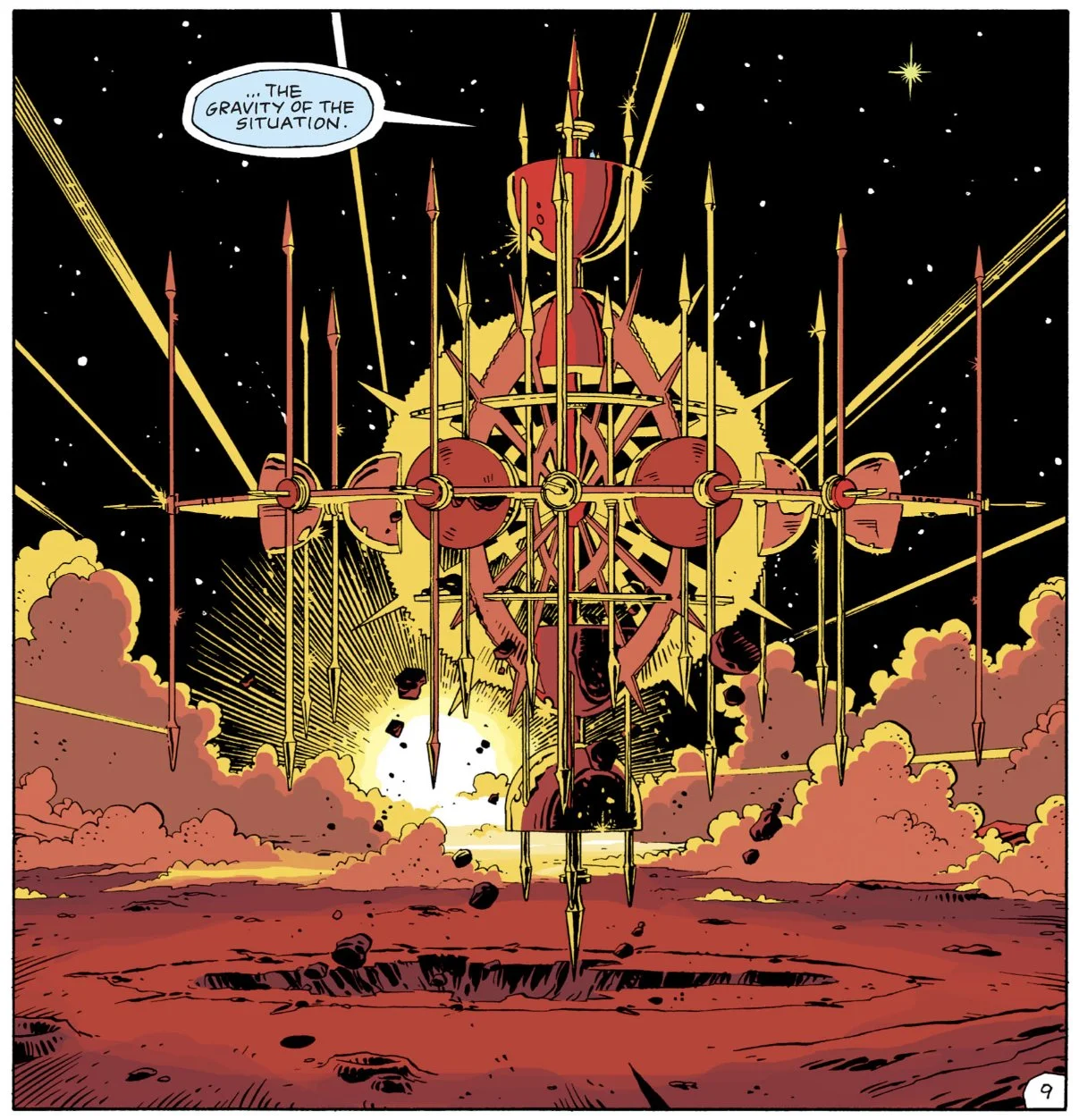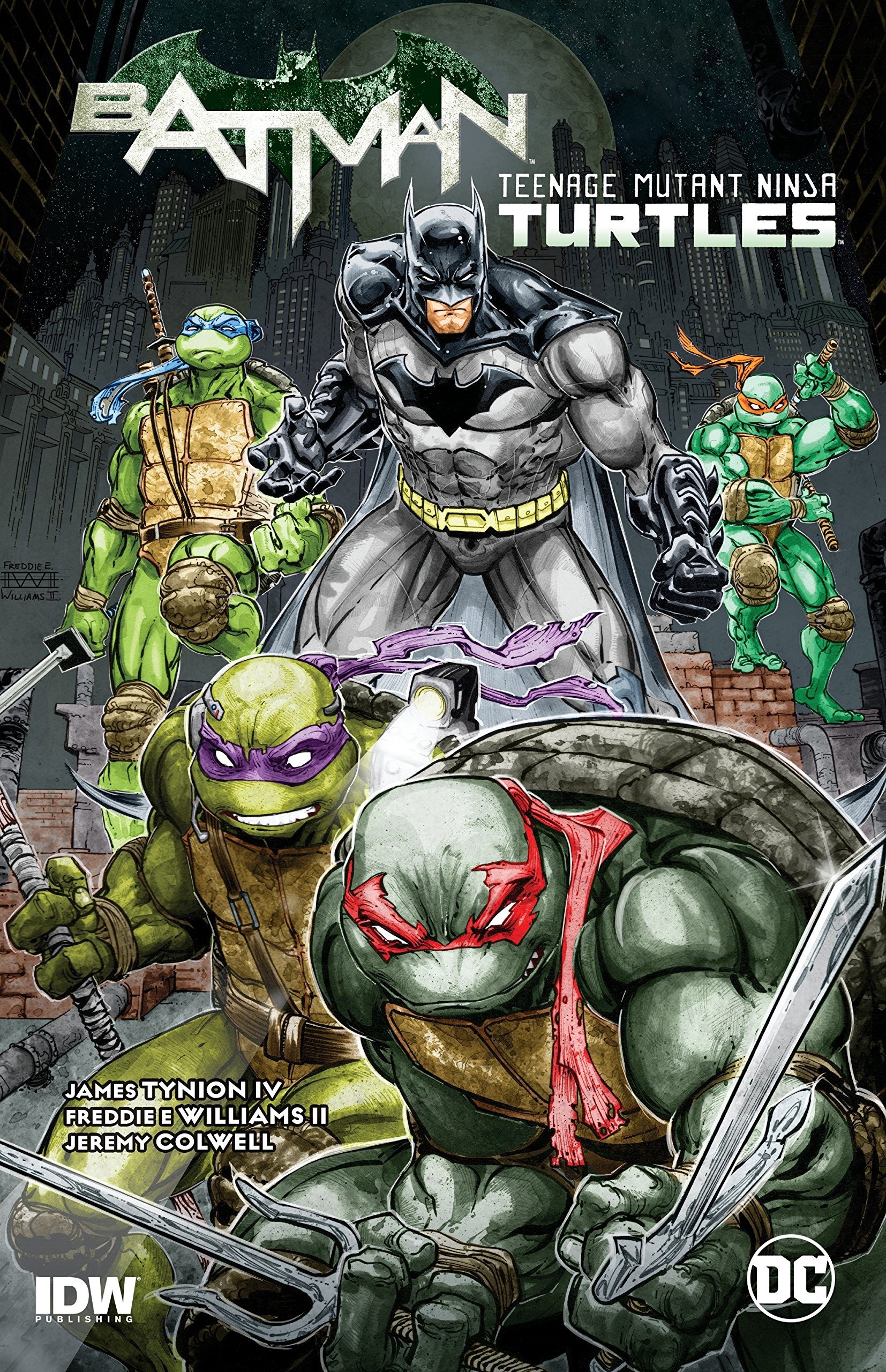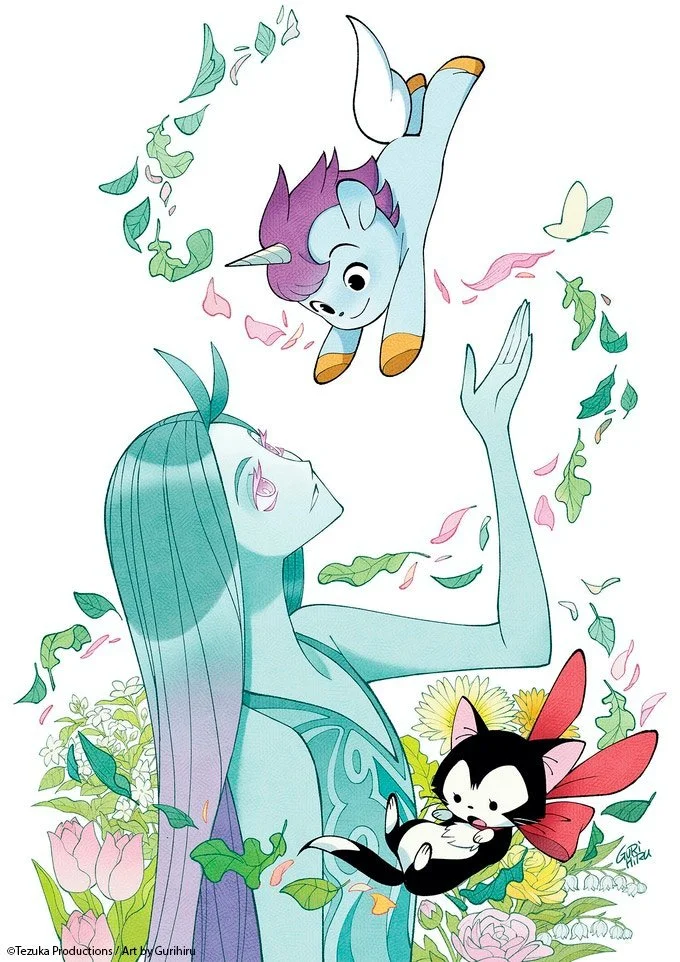GRAPHIC NOVEL REVIEW: Everyone is Tulip
By Steve Baxi — I consider myself lucky to have experienced at least a few of my formative years before social media. It wasn’t much, but it was enough to notice a seismic shift in human relationships was taking place. Slowly but surely, society’s expectations were changing in dangerous ways. Everyone is Tulip – a new graphic novel by David Baker, Nicole Goux, and Ellie Hall – is a profound study of human identity in the age of social media pressure. For anyone that may not know a world without their smartphone, this is a hard look in the mirror. For the rest of us, it’s a reminder of a world we may have left behind.
In no uncertain terms, I adored this book from start to finish. The cover is invitingly provocative, the art style is nuanced, the layouts are creative, and by the end you’re left with a powerful meditation on the pressures of online performance. Baker, Goux and Hall crafted a story I believe needs to be read by anyone who feels like the expectations of being in an online world hurts their ability to find their authentic self.
Everyone is Tulip wrestles with the duality of who you are, and who you perform as in online spaces. Becca, our lead character, moves to LA to become an actress, leaving behind a strained relationship with her father, her friends, and her partner. After arriving, she spends five years in the audition process, until being cast as Tulip for an online performance art production by Paradox XL, or Stanley when he’s not in character. Becca’s journey is discovering what she wants and deciding who she will become in order to achieve that desire. She becomes Tulip, and suddenly occupies two different worlds, two different selves. Ultimately she comes to surrender her control to the whims of social media demands.
Nicole Goux captures this duality by rendering Becca in two distinct art styles: Becca is drawn in a traditional indie comic style, whereas Tulip is drawn in a Shōjo manga style, complete with larger eyes, and more expressive color to create a polished, almost otherworldly effect.
As Becca becomes an overnight sensation, she finds herself having to reactively shift between personas. Goux is able to carefully shift Becca’s facial features to match her need to present herself as Tulip, and then return to Becca when the weight of this performance can’t be sustained. As the comic progresses, it becomes harder and harder to draw a neat line between Becca and Tulip.
Becca’s roommate, Eve, and her producer, Stanley, implore her to “play the game” by learning how to shift between her two personas. However, they fail to see how that shift is rarely by choice. Becca is often recognized in stores and on the street, where fans of her videos ask for selfies and call her by “Tulip.” She aggressively finds herself not being able to choose who she is anymore as the persona and the demands of her videos push away any agency she may have outside her role as Tulip.
In the midst of navigating her new persona, the comic is able to create moments of isolation for Becca that compound this need to become Tulip. As she feels less and less satisfied with how people treat her as Becca, it motivates her to become more like Tulip, only to ultimately be left just as unsatisfied as before. The only difference being her life is now dictated by the comments section of a video rather than people she may know.
In one sequence, Becca decides to lean into her Tulip persona and go on a shopping trip. She buys clothing with a similar flare to her video costumes and while she’s still drawn by Goux as Becca, the line blurs as she mirrors Tulip’s fashion choices.
Becca runs into an old friend, Evan, who recognizes her as Becca but comments “you’re like borderline hot now.” The next four pages are Becca frozen in this moment, as back-to-back double page spreads isolate her on the street and then zoom in on her reaction.
In these images, Becca once again transforms into Tulip, marrying the ideas of isolation and dissatisfaction in Becca with the visually distinct rendering of Tulip. This style of spread pages is frequently used in the comic to pause on Becca’s emotional state. When a sequence of dialogue ends with her in distress, we turn the page to see the full impact of that distress on her.
David Baker also takes full advantage of how much dialogue can be placed on each page with 9-Panel grids. We spend what feels like considerable time getting to know Becca, Eve, Chloe, and Stanley as their relationships swirl around how to become someone people desire, and how to live up to the expectations of an online society constantly demanding performances.
Each Tulip video sequence is shown through 9-panel grids, where she says repeatedly “Everyone is Tulip.” In an especially clever use of layouts, panels are sometimes replaced by cell phones showing social media activity and boxing in Becca as she processes comments on videos and text messages.
Similarly, the lettering choices in larger panels force Becca into further isolation. In this sequence, Eve enters the conversation between Becca and Stanley.
Becca rests on the left side of the panel, while our eyes naturally move rightward to read the dialogue. We constantly bounce between Eve and Stanley, their dialogue floods the space between them while simultaneously never allowing our eyes to return to Becca on the far left.
As the sequence continues, we finally see Becca again, crushed into the bottom right of a panel under dialogue, forced out of the conversation entirely.
My favorite art fosters some level of personal meditation: go for a walk, get out of wherever I might be and just think about what the narrative I was engrossed in means for my life. Everyone is Tulip fosters that exact experience. It’s hard to pick up my cell phone again, look at selfies or watch YouTube videos without feeling just a little guilty about the kinds of choices we’re making in service to our online presence. Every time Becca is forced to say “Everyone is Tulip,” she echoes the truth that everyone is performing some kind of identity. Whether that be to strangers online, to each other, or just to ourselves. Looking at my tweets, I wonder if I’m Tulip, creating an impression of myself that becomes difficult to shed, even with my friends in real life. That is an uncomfortable thought, and that is exactly why it’s worth wrestling with.
Everyone is Tulip is the ideal graphic novel experience. In a year filled with a number of new ongoing titles for my favorite characters, and new work by my favorite creators, I can still walk into the store, be struck by a book cover, and walk away with a new favorite graphic novel and a new team to follow into the future. Everyone is Tulip is not only a must-read for 2021, but a must-read for our entire terminally online generation.
Graphic Novel Review: Everyone is Tulip
Everyone is Tulip
Writer: David Baker
Artist and Letterer: Nicole Goux
Colorist: Ellie Hall, with Nicole Goux
Publisher: Dark Horse
Price: $19.99
Becca's dreams of fame seem to have come true when an internet performance-art video she stars in goes viral overnight. But she quickly discovers the allure and danger of sudden stardom.
From the creative team of F*ck Off Squad comes a psychological exploration of the modern media frontier and the unique pitfalls that come with internet fame.
Publication Date: June 30, 2021
Read more great graphic novel reviews!
Steve Baxi has a Masters in Ethics and Applied Philosophy, with focuses in 20th Century Aesthetics and Politics. He creates video essays on pop culture through a philosophy lens and frequently tweets through @SteveSBaxi.













